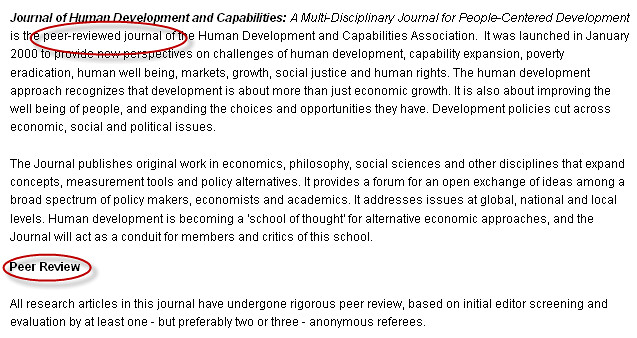This 3 minute video from the Peabody Library at Vanderbilt University talks about the differences between popular and scholarly articles. It also mentions trade publications.
So, what is "peer review"? This refers to the process where authors who are doing research submit a paper they have written to a journal. The journal editor then sends the article to the author's peers (researchers and scholars) who are in the same discipline for review. The reviewers determine if the article should be published based on the quality of the research, including the validity of the data, the conclusions the authors' draw and the originality of the research. This process is important because it validates the research and gives it a sort of "seal of approval" from others in the research community.
Peer review in 5 minutes (NCSU) (5:11 min.)
One of the best places to find out if a journal is peer-reviewed is to go to the journal website.
Most publishers have a website for a journal that tells you about the journal, how authors can submit an article, and what the process is for getting published.
If you find the journal website, look for the link that says information for authors, instructions for authors, submitting an article or something similar.

When you are determining whether or not the article you found is a peer-reviewed article, you should consider the following.

|
|
